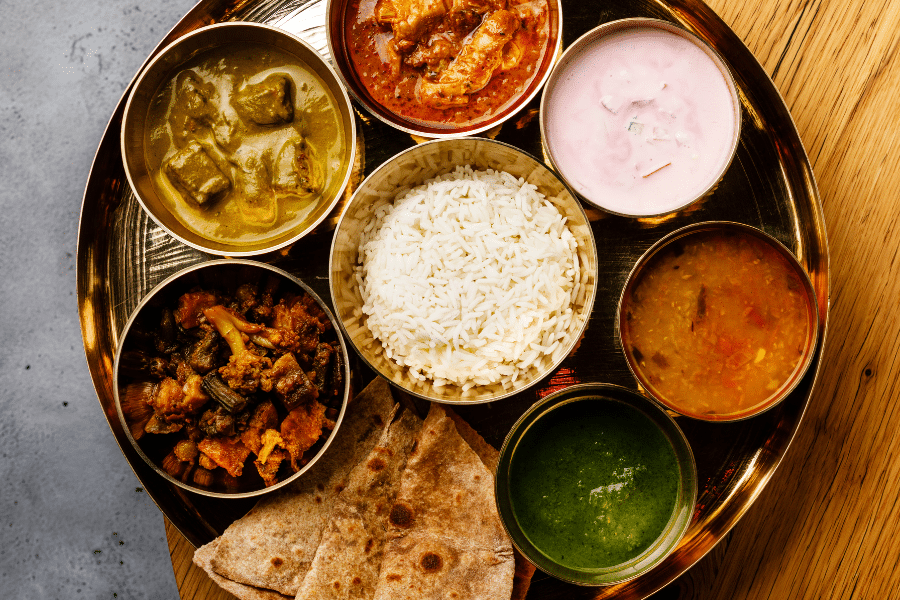It can come as a surprise to learn that returning home after a stint of living abroad, might not be as easy as you think. ‘Reverse culture shock’ is the term given to the challenging period experienced by people returning home after living overseas when they find that they have to readjust to their home culture.
Moving back to your home country can prove just as challenging as when you made the initial move abroad. We explore the emotional and psychological aspects of reverse culture shock. We uncover strategies for successfully readjusting to your home culture. We also give you tips on how to handle the mixed emotions you may experience.
What Is Reverse Culture Shock?
Reverse Culture Shock is the term given to the period of readjustment that often occurs when someone returns to their home country. It is well known that Culture Shock regularly occurs when moving to a new country and a person grapples with a new language, a different culture and traditions. Reverse Culture Shock when you move back to your home country can be equally challenging. It can affect all ages.

A number of universities recognize this problem, including the International Support Services at the University of Kansas: “Research indicates that about 70% of students experience ‘reverse culture shock’ as they readjust to their lives in their home country. Experiencing reverse culture shock can cause problems in your daily life, such as academic problems, communication difficulties, anxiety, and depression.”
Why Does It Occur?
It does seem strange that Reverse Culture Shock occurs when you return home. It is a totally normal experience because time will not have stood still in your absence. Changes in the culture of your homeland, plus values and habits will have taken place.
Importantly, you and your perspectives will also have changed too and you will have embraced some of the nuances in attitude and cultural aspects from the country where you have been living. Your memories of your home culture will suddenly seem dated with what you are now experiencing and this can feel bewildering.
I clearly remember moving back to the UK from Cyprus 12 years ago. In Cyprus, cash was commonly used for everyday purchases. Debit Cards had hardly made an appearance! In the UK, I suddenly discovered that many people carried no cash on them and all transactions were made with cards! It certainly took a while to understand how everyday life had changed. It was important for me to appreciate that this was a natural step in the process of settling back at home after years abroad.
Common Symptoms of Reverse Culture Shock
It seems ironic, but when you first arrive back home, you may well feel homesick for your live abroad. You may well miss your host country’s culture, food and general way of life. This is part of the process of reverse culture shock and can lead to inner conflict.
It can feel as though your sense of identity has changed and you no longer feel confident of who you really are. Conversations with family members and friends who have not lived abroad can feel disconnected as they have not had the same experiences that you have had.
Feelings of anxiety and depression can be experienced as you realize that those you love seem to have changed and so has your home country – perhaps even a change in the political landscape.
Because so much has changed… It is important to realize how many aspects of your life will have changed. When you understand these changes, you can understand the emotions they are triggering.
When you move so much of your life changes. It sounds so obvious, but really, just pause here and think about it for a moment: your personal and professional life, your love and family life, your environment and surroundings, your food and lifestyle in general are very affected by a geographical change.
Most of the people you have around you change. What you do with your life in general changes. Your diet and exercise habits, the way you dress, your customs, your way of thinking may have changed during this time abroad and it might change once more now that you are going back.

You have changed: your life experiences have changed you. At home some things might have changed a bit or a lot, or maybe have not changed at all. You are naturally concerned about what you will find back home, and how you will deal with it, how people will see you and how you will see them. There are many things from your life abroad that you like very much and you worry that you might not be able to enjoy them once you get home’.
The Emotional Impact of Returning Home
Returning to your home country after living abroad is often a time of mixed emotions. There will be excitement and delight at catching up with family members and friends. There could be a feeling of relief to be ‘back home’, but you may also experience feelings of sadness and frustration as you don’t ‘feel settled’ as your home country has changed in your absence.
You may feel a sense of loss for all you achieved when living abroad and the friends that you made there. This feeling can also be triggered by the sense that life is not at exciting and adventurous compared to life abroad.
How to Cope with Reverse Culture Shock
The key to success is to use the same techniques that you used when you first moved abroad. In the early days of living in a different country you may well have experienced Culture Shock. Put the same techniques you used to help you settle abroad, in reverse to help you settle.
● Give Yourself Time to Readjust
How long you take to readjust to life in your home country is subjective as it differs from person to person. Reverse culture shock can come in waves so that you experience good and bad days. Patience is important because you will need time to readjust. Remember that during this stage, life will prove just as challenging as when you first moved abroad.
● Stay Connected With Your Host Country
Keeping in touch with friends you have made out in your host country can really make the difference as you will still have a strong connection with the life that they lead. It can really helpful to introduce some of the traditions, festivals and cooking that you learnt while abroad into your daily life in your home country. Your family and friends will enjoy tasting the cuisine of your host country and learning about your life there.
● Maintain Relationships Abroad
By staying in touch with friends and colleagues in your host country you will feel a sense of connection with the life you enjoyed there. If you learnt the local language, it can be fun to keep practicing it when you telephone or send messages. Unfortunately, you can begin to feel rusty when you don’t speak the language often. It can help to keep it ticking over using Duolingo or similar platforms. Enjoying local music from your host country can also be very therapeutic.

● Find Support from Fellow Returnees
It can be rewarding to join a Reverse Culture Shock Support Group. There you will have the chance to share memories and experiences with others. Take any good advice given too. Talking with other expats who have experienced the same as you can be really beneficial as they will understand the emotional challenges that you are facing.
● Share Your Experiences (But with Balance)
Sharing your experiences from abroad can be therapeutic, but it needs to be in the right setting, with people who are interested and can relate to your stories. Discussing your adventures with others who have been expats will be fun and rewarding. The opposite can be true if you do the same with those who have never lived abroad.
The key to success is maintaining a balance between your new identify while trying to reconnect with your old friends, family members and all the familiar places.
Reintegrating into your Home Culture
Successfully settling back into your home life will require plenty of effort on your part. At first, you will not feel at ease with customs, habits and even your daily routine. They are all likely to have changed. Building a new daily routine is a good way to feel grounded and gain a feeling of stability.
Try and keep yourself busy and ensure that you enjoy plenty of exercise – especially walking. Ask for help from friends as this will build bridges and strengthen your friendships. A fun way to reconnect with friends and family members is to cook them the food you loved when abroad. Introducing them to the local music from your host country can be fun too.
If you have developed new interests during the time you were abroad it is good to continue using them. Take action! Get involved in local activities and put your new interests to good use. If you have developed a new hobby or skill it can be rewarding to share it in your local community.
Managing the Identity Shift
When you first return home, it can feel strange- like you have been living on another planet. All the people and places that you were once comfortable with, seem to have changed. During your first weeks back in your home country, you will develop a hybrid identity.
This is a combination of aspects from your home and host cultures. It will feel strange, but it is a passing phase. It is best to embrace the changes, rather than fight them. When settling into life in your home country, integrating aspects from your life abroad into your new life can help.
Don’t be harsh on yourself during this transitional phase. Readjusting takes time, but can be one of continued growth. You will be able to maintain the values you have learned abroad and integrate them into your new life.
Long-Term Adaptation and Moving Forward
The long-term adaptation to life back home takes time as it brings a unique set of challenges. Reverse culture shock is a process in which you adjust to life in your home country, integrating both your past and present experiences.
Moving back home, doesn’t mean that you must put aside the experiences and language abilities you have gained. It is the long-term process of adaptation in which you can successfully blend both past and present experiences into your home life.
Looking for opportunities in your home community using what you have learned abroad, can be very rewarding. Planning future trips abroad to your host country – or others- can be positive. Choose somewhere you can enjoy a similar culture or practice the language you learned. This will help to keep your sense of adventure alive.
Focusing on the positives can really help too. Remind yourself regularly all the good reasons to be home – family, friends, food etc. There may be other comforts you missed while you were living abroad including certain shops, newspapers even food brands.
When you move back to your home country, so many aspects of your personal and professional life will have changed. These include your environment and surroundings and the dynamics in your family and friendships. Importantly, you will have changed too.
Reverse culture shock is the period of adjustment experienced by many settling back into life in their home country. It can be a challenging phase, trying to find a new balance in your life in your home country. Acknowledge that the feelings you have are totally normal and will disappear. Our coping strategies help you navigate this period and blend the best from your host and home countries…

